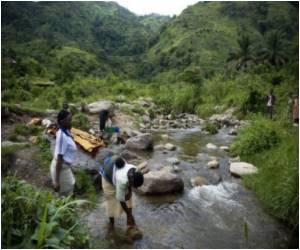Australian researchers have shown that genetic diversity could be the key to survival for food crops in the face of the looming threat of global warming.

Professor Robert Henry from the Queensland Alliance for Agriculture and Food Innovation (QAAFI), who led the research team, said there were global implications for this discovery. "This finding will be useful in selecting crop varieties that can cope with a variable and changing climate," he said.
The genetic diversity found by the scientists is seen as a bulwark against climate change because some genes offer plants a degree of resistance to bacterial and fungal pathogens, both of which are known to attack plants under stress.
In a study conducted over more than 238 km of remote landscape, researchers from QAAFI and Southern Cross University compared wild cereal relatives growing in Australia with those found in the Fertile Crescent, where agriculture began in the cradle of civilisation.
The Fertile Crescent is a geographical region that stretches more than 2000 km from the Nile in Egypt to the waters of the Persian Gulf in the west.
Already wild barley in the Fertile Crescent has been found to have coped successfully with diverse environmental stress factors.
Advertisement
Such attributes make wild barley an attractive candidate for studying the effects of environmental factors on the emergence of biodiversity, as well as representing a promising source of genetic material for improving the hardiness and economic value of cultivated barley.
Source-Medindia









